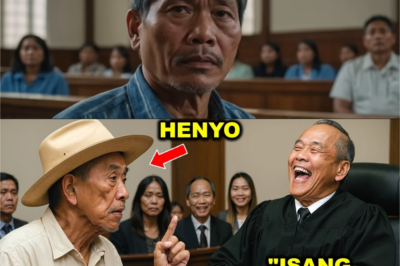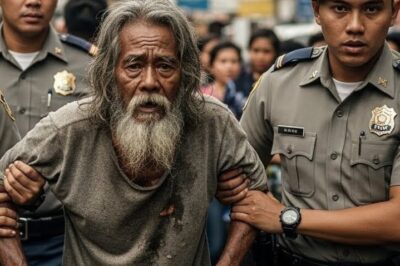Bollywood actors whose careers were ruined by Salman Khan
.
.
.
play video:
Bollywood Actors Whose Careers Were Allegedly Affected by Salman Khan: Power, Politics, and Controversies
Salman Khan—known as “Bhaijaan” to millions of fans—is one of Bollywood’s biggest superstars, a maverick who has shaped the industry in more ways than one. Revered as a “messiah” and a “launchpad” for many newcomers, Salman’s influence extends far beyond his box office clout. His network, fan base, and industry connections form a formidable power center in Bollywood. However, with great power comes controversy. Over the years, there have been persistent rumors and accusations that Salman Khan’s shadow has also cast a dark cloud over certain actors’ careers, allegedly stalling or even ruining promising trajectories.
This article delves into the stories of some talented actors whose careers reportedly suffered after crossing paths with Salman Khan or his close circle. It also explores the complex ecosystem of Bollywood’s power dynamics, where talent alone often isn’t enough, and alliances can make or break careers.
The Power of Salman Khan in Bollywood
Salman Khan is not just an actor; he is a Bollywood institution. His presence in a film often guarantees commercial success, and his endorsement or disapproval can significantly impact an actor’s prospects. Producers, distributors, and studios frequently seek Salman’s approval before finalizing casting decisions. His loyal fan base is known for fiercely defending him, often leading to social media trolling of anyone who criticizes or opposes him.
This immense influence means Salman’s “camp” or inner circle enjoys privileges and opportunities that others might find hard to access. Conversely, those outside this circle—or worse, those who fall out of favor—can find themselves facing closed doors and dwindling chances.
Vivek Oberoi: From Rising Star to Controversy
Vivek Oberoi was once considered one of Bollywood’s most promising young talents. With critically acclaimed performances in films like Company and Saathiya, he was on a steady rise. However, his career trajectory took a sharp turn in 2003 when his name became linked romantically with Aishwarya Rai, who had a past association with Salman Khan.
In a dramatic press conference, Vivek accused Salman of repeatedly calling and threatening him—claiming he received 41 calls in one night, many laced with abuses. This public confrontation shocked the industry. Following this, Vivek reportedly faced a backlash: directors distanced themselves, projects were shelved, and his presence at events diminished.
Though Vivek later apologized, admitting he was young and made mistakes, the damage to his career was significant. Once hailed for his acting prowess, he became known more for the controversy surrounding his fallout with Salman. Many believe that if Vivek had not publicly confronted Salman, his career might have followed a very different path.
Arjun Kapoor: The Protégé Who Fell Out of Favor
Arjun Kapoor’s entry into Bollywood was heavily supported by Salman Khan. Salman not only helped groom Arjun for acting but also guided him on fitness and career choices. Publicly, Salman praised Arjun, treating him like a younger brother and boosting his profile.
However, rumors started swirling when Arjun’s name was linked with Malaika Arora, who was then married to Salman’s brother, Arbaaz Khan. Industry whispers suggested that Salman and his close circle were displeased with this association, leading to a cooling of relations.
Post this fallout, Arjun’s career momentum slowed. Offers from big banners became scarce, and the marketing muscle behind his films seemed to weaken. Many insiders attribute this decline to his estrangement from Salman’s influential camp, highlighting how critical alliances are in Bollywood’s ecosystem.
Abhinav Kashyap: The Director Silenced
Abhinav Kashyap rose to fame with the blockbuster Dabangg (2010), which introduced Salman Khan’s iconic character Chulbul Pandey. The film’s success was massive, and Abhinav was hailed as a visionary director.
However, when it came time for Dabangg 2, Abhinav was suddenly replaced by someone else. Initially, this was attributed to “creative differences,” but the truth was more complicated. Abhinav later penned an open letter accusing Salman and his family of pressuring producers to remove him from the project and actively sabotaging his career.
He claimed he was threatened and isolated, with attempts made to block his opportunities across the industry. This revelation sparked debates about the monopolistic influence of star families and the challenges faced by creatives who dare to challenge the status quo.
Randeep Hooda: A Missed Opportunity?
Randeep Hooda is widely regarded as one of the finest actors of his generation, known for his intense and authentic performances. When he was cast opposite Salman Khan in Kick (2014), fans expected a compelling on-screen battle.
Initially, Randeep’s role was substantial, portraying a tough police officer integral to the story. However, as production progressed, reports emerged that many of his scenes were cut or trimmed significantly during editing. Industry insiders speculated that Salman did not want any co-actor overshadowing his charisma.
For Randeep, Kick was a missed chance to cement his place in mainstream Bollywood. The reduction of his role was seen by many as a deliberate move to protect Salman’s star image, illustrating how power dynamics can influence creative decisions.
The Unseen Struggles of Other Talents
Beyond the well-known cases, there are whispers about other actors who struggled to find footing due to their distance from Salman’s camp. Ayushmann Khurrana, despite consistent hits, reportedly did not receive backing from Salman’s network. Meanwhile, actors with less talent but closer ties to powerful groups often enjoy repeated opportunities.
Sangram Singh, a wrestler turned actor, once hinted in an interview that his lack of association with influential camps hindered his Bollywood aspirations. The tragic death of Sushant Singh Rajput further raised questions about the industry’s politics. Many wondered why a talented actor like Sushant never received open support from Salman Khan despite his stature, fueling debates about favoritism and silence in Bollywood.
The Power and Responsibility Debate
Salman Khan’s immense influence in Bollywood is a double-edged sword. On one hand, he has launched and revived the careers of many actors, using his clout for good. On the other hand, his camp’s dominance can create an exclusionary environment where dissent or distance leads to professional isolation.
Industry insiders acknowledge that Bollywood’s “camp culture” and factionalism are nothing new. Every major star has a loyal circle that opens doors for some while closing them for others. But when one individual wields disproportionate power, questions arise about fairness and meritocracy.
Is it right for any single superstar to have the ability to make or break careers? Does this concentration of power stifle new talent and creativity? These are ongoing debates within the industry and among its audience.
The Fine Line Between Rumors and Reality
It is important to note that many of these stories are based on rumors, insider gossip, and selective narratives. Bollywood is notorious for its opacity and politics, making it difficult to ascertain the full truth. Some actors may have faced setbacks due to personal choices, market dynamics, or sheer luck rather than external interference.
Moreover, Salman Khan himself has been credited with rescuing careers and supporting newcomers. His contributions to the industry are undeniable, and many actors openly express gratitude for his mentorship and support.
Conclusion: Navigating Bollywood’s Complex Ecosystem
The tales of Vivek Oberoi, Arjun Kapoor, Abhinav Kashyap, Randeep Hooda, and others highlight the intricate web of relationships, power, and politics in Bollywood. While Salman Khan’s influence is monumental, the industry’s ecosystem is a complex mix of talent, timing, connections, and sometimes sheer luck.
For aspiring actors and filmmakers, understanding these dynamics is crucial. Success in Bollywood is rarely just about talent; it often involves navigating powerful networks and managing relationships carefully.
As fans and observers, it is essential to approach such stories with nuance—recognizing the shades of truth and the layers of rumor. The conversation about power concentration and fairness in Bollywood will likely continue, reflecting broader societal questions about influence and opportunity.
In the end, the hope remains that talent and hard work will find their rightful place, and that the industry evolves to be more inclusive, transparent, and supportive of diverse voices.
News
“Tumahimik ka, magsasaka!” — panunuya ng hukom… pero siya ang napahiya sa depensa nito
“Tumahimik ka, magsasaka!” — panunuya ng hukom… pero siya ang napahiya sa depensa nito . . Sa lumang Hall of…
MINALIIT NG MAGULANG NG BABAE ANG KANYANG NOBYO DAHIL ISA LANG ITONG MAGSASAKA, NAPANGANGA SILA NANG
MINALIIT NG MAGULANG NG BABAE ANG KANYANG NOBYO DAHIL ISA LANG ITONG MAGSASAKA, NAPANGANGA SILA NANG . . . ….
Nagulat ang Maynila nang nahuli ang isang pulubi sa palengke! Pero sino siya at bakit?
Nagulat ang Maynila nang nahuli ang isang pulubi sa palengke! Pero sino siya at bakit? . . Sa gitna ng…
TINAYA ANG KASAL SA ARNIS—MANALO KA SA 5 MINUTO O TAPOS TAYO!
TINAYA ANG KASAL SA ARNIS—MANALO KA SA 5 MINUTO O TAPOS TAYO! . . . Sa gabing umuulan sa Maynila,…
Değerli değilim ama sıcak bir yatak için bacaklarımı açarım – dedi kadın yalnız kovboya
Değerli değilim ama sıcak bir yatak için bacaklarımı açarım – dedi kadın yalnız kovboya . . . Külün Altındaki Köz…
PKK Bebek Katili Çıktı — TSK’nın Anında Müdahalesi Herkeli Şaşırttı!
PKK Bebek Katili Çıktı — TSK’nın Anında Müdahalesi Herkeli Şaşırttı! . . SALAHİYE’DE O SABAH Sabahın en kırılgan saatleri vardır;…
End of content
No more pages to load












